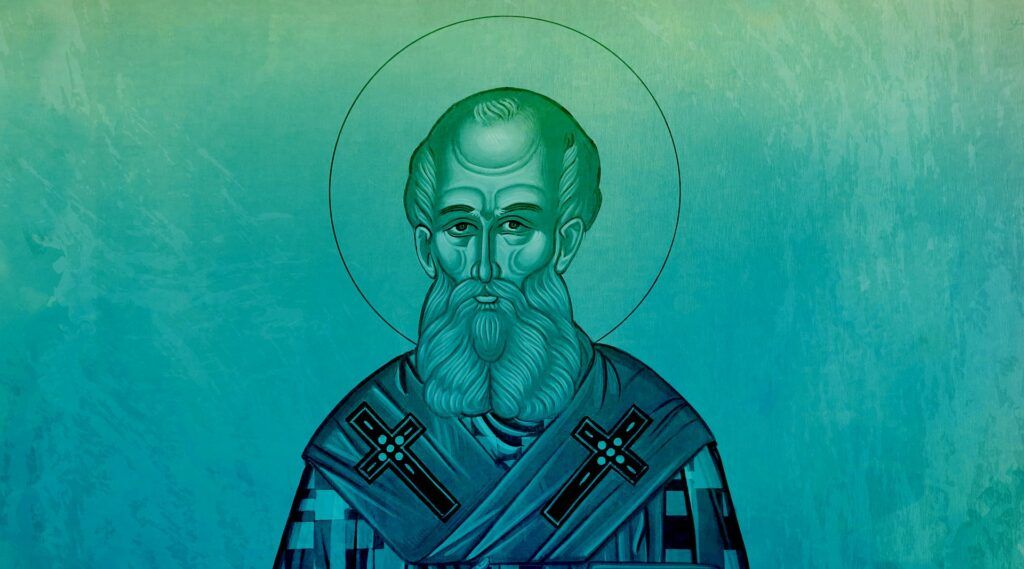‘Remember those who led you, who spoke the word of God to you; and considering the result of their conduct, imitate their faith’ (Heb 13:7 NAU)
In my last post, as part of the Examples to Follow series, we looked at Charles Spurgeon as a Husband. Today, I want us to remember a man named Athanasius, who lived in the 300s. Athanasius’s life can be summed up with the word: courage. He took a stand for the full deity of God the Son when it seemed like the whole world was against him.
For Athanasius, the Arian controversy was not a matter of theological subtleties with little or no relevance. In fact, he believed that the very core of the Christian message was at stake.
The Arian controversy began in the mid 300s in Alexandria, the leading city of Egypt. Arius, a leading preacher in that city, had been circulating the following motto regarding God the Son: ‘There was when He was not’. This was a denial that the Word, or God the Son, existed eternally with the Father, as is so clearly taught in Scripture.
‘In the beginning was the Word, and the Word was with God, and the Word was God’ (John 1:1)
‘Jesus said to them, “Truly, truly, I say to you, before Abraham was born, I am”‘ (John 8:58)
What was at stake was the full deity of our Lord Jesus Christ. Arius claimed that, strictly speaking, the Word was not God, but the first of all God’s creatures. Arius said that before anything else was made, the Word had been created by God. The resulting conflict was the Council of Nicea in 325. When Arius’s view was explained, it provoked an angry reaction from many of the bishops, who called him out as a liar, a blasphemer, and a heretic. The resulting Creed, called the Nicaean Creed, said:
We believe in one God, the Father Almighty, maker of all things visible and invisible. And in one Lord Jesus Christ, the Son of God, the only-begotten of the Father, that is, from the substance of the Father, God of God, light of light, true God of true God…
However, the council of Nicea did not end the Arian controversy. In fact, over the next few years, through the political maneuvering of its supporters, the Arian view gained dominance and the church teetered on the edge of denying the deity of Christ.
Fortunately, Athanasius entered the stage. Athanasius was born to ordinary parents, and his personal preference was to live a quiet life of service and contemplation. Athanasius had no desire to be the bishop in the second-largest city in the Roman empire. Short, common, and dark of skin, his enemies called him ‘the black dwarf’. But true doctrine needed a champion, and as reluctant a knight as ever rode into battle, Athanasius became bishop of Alexandria in 328.
Over the next several decades, Athanasius was exiled from Alexandria and recalled seven times as the theological battle for the deity of Christ swayed back and forth. In one case, his enemies tried to have Athanasius removed from Alexandria by force. The Roman governor surrounded his church with troops and burst into the service to arrest Athanasius. Whisked to safety by his friends, Athanasius spent five years living in the desert pursued from one refuge to another by imperial troops. This routine of exile and hiding happened repeatedly.
During these years of hiding, the Biblical view of Christ suffered severe setbacks. Imperial policy was openly in favour of the Arians. Several synods were forced to declare themselves for Arianism. Although many church leaders were convinced that Arianism was not a Biblical view of Christ, it was difficult to oppose it when the state supported it so decisively. After the Emperor Julian’s death, there were a few months of relief, but then Athanasius had to flee the city again when Valens, a staunch Arian, became Emperor. Eventually, Athanasius returned to Alexandria.
Through a series of books, letters, and negotiations Athanasius convinced the majority of church leaders of the full deity of Christ. By 381 (eight years after Athanasius’ death) the battle had been decisively won. Humanly speaking, that victory depended largely on one man – the ‘black dwarf’, Athanasius. In fact, those decades of church history are often summarised by a Latin saying, Athanasius contra mundo, which means Athanasius against the world. However, Athanasius understood the significance of Paul’s words to Timothy in 2 Timothy:
‘Retain the standard of sound words which you have heard from me, in the faith and love which are in Christ Jesus. Guard, through the Holy Spirit who dwells in us, the treasure which has been entrusted to you’ (2 Tim 1:13-14 NAU)
Courage is Athanasius’s word, because that is what it took to stand against the world to defend the deity of Jesus Christ. And that’s the kind of courage that you and I need today to stand for Christ against the errors, hatred, and persecutions of the world.













